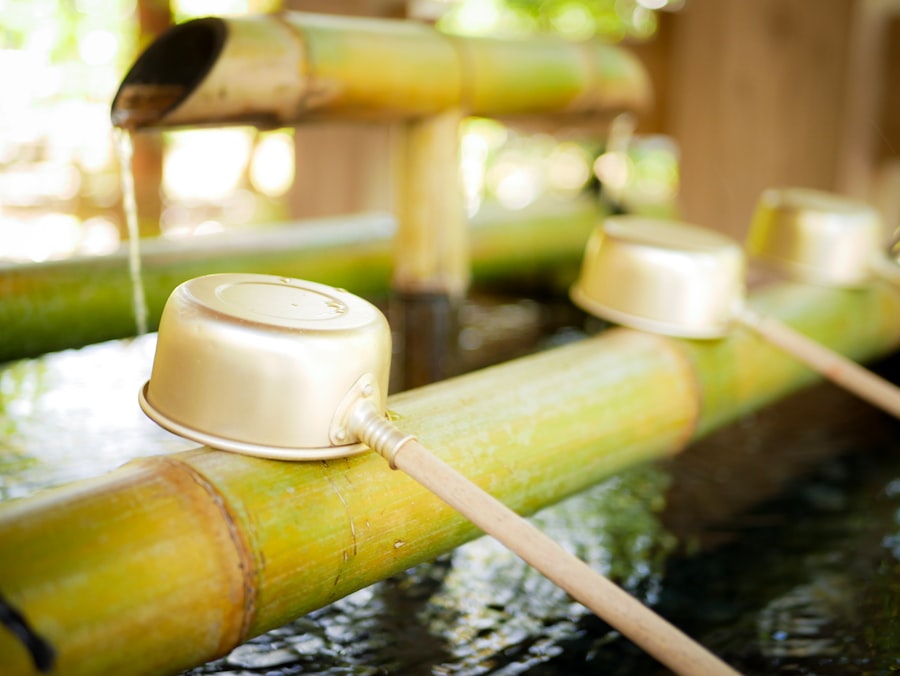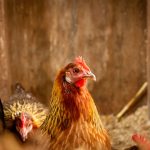Meat chickens, or broilers, have specific water requirements crucial for their growth and health. Water is essential in their diet, playing a vital role in physiological processes like digestion, nutrient absorption, temperature regulation, and waste excretion. It is necessary for hydration, body temperature maintenance (especially in hot weather or when consuming high-energy diets), and proper functioning of circulatory and respiratory systems.
Understanding these water needs is critical for ensuring broiler well-being and maximizing growth potential. Broilers have higher water requirements than other poultry due to their rapid growth rate and high metabolic activity. They need constant access to clean, fresh water to meet their physiological demands.
Water needs vary based on factors such as age, body weight, environmental temperature, diet composition, and production system. Adequate water provision is essential for supporting growth, maintaining health, and optimizing feed conversion efficiency. By comprehending broilers’ specific water needs, poultry producers can implement effective management practices to ensure sufficient, high-quality water supply.
Table of Contents
- 1 Factors influencing water requirements in meat chickens
- 2 Calculating the daily water intake for meat chickens
- 3 Importance of providing clean and fresh water to meat chickens
- 4 Monitoring and managing water consumption in meat chickens
- 5 Potential health issues related to inadequate water intake in meat chickens
- 6 Tips for ensuring adequate water supply for meat chickens
- 7 FAQs
- 7.1 What is the water requirement for meat chickens?
- 7.2 How much water should be provided to meat chickens daily?
- 7.3 What factors can affect the water requirement for meat chickens?
- 7.4 Why is water important for meat chickens?
- 7.5 What are the signs of dehydration in meat chickens?
- 7.6 How can water quality impact meat chickens?
Key Takeaways
- Meat chickens have high water needs due to their rapid growth and high metabolic rate
- Factors such as temperature, humidity, diet, and activity level can influence the water requirements of meat chickens
- Daily water intake for meat chickens can be calculated based on their body weight and environmental conditions
- Clean and fresh water is crucial for the health and well-being of meat chickens
- Regularly monitor water consumption and ensure adequate supply to prevent dehydration and potential health issues
Factors influencing water requirements in meat chickens
Age and Body Weight: Key Determinants of Water Requirements
The water requirements of meat chickens are influenced by several factors, and understanding these factors is crucial for providing optimal water management in poultry production systems. Age is a significant factor, as younger birds have higher water requirements compared to older birds due to their rapid growth and development. Body weight also plays a role, as larger birds require more water to support their metabolic functions and maintain their body temperature.
Environmental Temperature and Diet Composition: Additional Influencing Factors
Environmental temperature is another critical factor that influences the water requirements of meat chickens. Birds consume more water to cool themselves down during hot weather or when they are exposed to high ambient temperatures. Diet composition can also impact the water needs of meat chickens, as birds consuming high-energy diets or diets with high levels of salt or protein may require more water to aid in digestion and nutrient utilization.
Production System and Management Practices: Implications for Water Requirements
Production system and management practices can also influence the water requirements of meat chickens. Birds raised in intensive production systems may have different water needs compared to those raised in free-range or pasture-based systems. By considering these factors, poultry producers can adjust their water management strategies to ensure that meat chickens have access to a sufficient and high-quality water supply that meets their specific physiological demands. Understanding the factors influencing water requirements in meat chickens is essential for optimizing production performance and promoting the welfare of the birds.
Calculating the daily water intake for meat chickens

Calculating the daily water intake for meat chickens is essential for ensuring that poultry producers provide an adequate and high-quality water supply to meet the birds’ physiological demands. The daily water intake of meat chickens can be estimated based on their age, body weight, environmental temperature, diet composition, and production system. As a general guideline, meat chickens typically consume around 1.5 to 2 times more water than feed on a weight basis.
For example, a broiler weighing 2 kilograms may consume approximately 3 to 4 liters of water per day under normal environmental conditions. However, it is essential to consider other factors such as environmental temperature, diet composition, and production system when calculating the daily water intake for meat chickens. Environmental temperature can significantly impact the daily water intake of meat chickens, as birds consume more water to regulate their body temperature during hot weather or when they are exposed to high ambient temperatures.
Additionally, diet composition can influence the daily water intake of meat chickens, as birds consuming high-energy diets or diets with high levels of salt or protein may require more water to aid in digestion and nutrient utilization. By considering these factors, poultry producers can calculate the daily water intake for meat chickens more accurately and adjust their water management practices to ensure that the birds have access to a sufficient and high-quality water supply that meets their specific physiological needs. Calculating the daily water intake for meat chickens is crucial for optimizing production performance and promoting the welfare of the birds.
Importance of providing clean and fresh water to meat chickens
Providing clean and fresh water to meat chickens is essential for ensuring their health, welfare, and performance in poultry production systems. Clean and fresh water is necessary for maintaining proper hydration, supporting digestion and nutrient absorption, regulating body temperature, and promoting overall well-being in meat chickens. Contaminated or poor-quality water can lead to reduced feed intake, impaired growth performance, increased susceptibility to diseases, and compromised immune function in meat chickens.
Therefore, it is crucial for poultry producers to prioritize the provision of clean and fresh water to meet the specific physiological needs of meat chickens. Water quality is a critical factor that can impact the health and performance of meat chickens, as birds are sensitive to contaminants such as bacteria, viruses, fungi, parasites, toxins, heavy metals, and chemicals present in the water. Poor-quality water can also lead to increased microbial contamination in the gastrointestinal tract of meat chickens, which can result in digestive disorders and reduced nutrient absorption.
Additionally, inadequate access to clean and fresh water can lead to dehydration, heat stress, and other health issues in meat chickens. By providing clean and fresh water, poultry producers can support the overall health and well-being of meat chickens while maximizing their growth potential and feed conversion efficiency. The importance of providing clean and fresh water to meat chickens cannot be overstated, as it is a fundamental requirement for ensuring the success of poultry production operations.
Monitoring and managing water consumption in meat chickens
Monitoring and managing water consumption in meat chickens is essential for optimizing production performance, promoting bird welfare, and ensuring efficient use of resources in poultry production systems. Poultry producers can monitor water consumption in meat chickens by using various methods such as flow meters, automatic drinkers with volume counters, manual recording of water levels in drinkers, and visual inspection of bird behavior around drinkers. By monitoring water consumption regularly, producers can identify any deviations from expected patterns and take appropriate actions to address potential issues related to water quality, availability, or bird health.
Managing water consumption in meat chickens involves implementing effective strategies to ensure that birds have access to a sufficient and high-quality water supply that meets their specific physiological needs. This includes providing an adequate number of drinkers distributed evenly throughout the production facility, maintaining clean and functional drinkers, adjusting drinker height to accommodate bird size and age, ensuring proper ventilation and cooling systems to reduce heat stress, and implementing biosecurity measures to prevent contamination of the water supply. By managing water consumption effectively, poultry producers can optimize production performance while promoting the health and welfare of meat chickens.
Monitoring and managing water consumption in meat chickens is a critical aspect of poultry production management that requires attention to detail and proactive decision-making to ensure the success of the operation.

Dehydration and Heat Stress: Common Consequences of Inadequate Water Intake
Inadequate water intake in meat chickens can lead to various health issues that negatively impact bird welfare and production performance. Dehydration is a common health issue related to inadequate water intake, resulting in reduced feed intake, impaired growth performance, increased mortality rates, and compromised immune function. Dehydrated birds may exhibit signs such as lethargy, reduced activity levels, sunken eyes, dry mucus membranes, and poor skin elasticity. Heat stress is another potential health issue, especially during hot weather or when birds are consuming high-energy diets.
Digestive Disorders and Systemic Complications
In addition to dehydration and heat stress, inadequate water intake can lead to digestive disorders such as impacted crop, gizzard erosion, enteritis, and clostridial infections. Birds may also experience electrolyte imbalances, kidney dysfunction, urinary tract infections, and reproductive issues due to insufficient hydration.
Prevention and Management Strategies
Furthermore, inadequate access to clean and fresh water can increase the risk of disease transmission among birds through contaminated drinking sources. By addressing potential health issues related to inadequate water intake through proactive management practices such as monitoring water consumption, providing clean and fresh water, adjusting drinker height, and implementing biosecurity measures, poultry producers can promote the overall health and welfare of their birds while maximizing production performance.
Tips for ensuring adequate water supply for meat chickens
Ensuring an adequate water supply for meat chickens is crucial for supporting their growth, health, welfare, and performance in poultry production systems. Poultry producers can implement various tips to ensure that birds have access to a sufficient and high-quality water supply that meets their specific physiological needs. This includes providing an adequate number of drinkers distributed evenly throughout the production facility to ensure that all birds have easy access to water at all times.
Drinkers should be maintained regularly to ensure cleanliness and functionality while adjusting drinker height to accommodate bird size and age. Producers should also monitor water consumption regularly using flow meters or volume counters to identify any deviations from expected patterns and take appropriate actions if necessary. Additionally, ensuring proper ventilation and cooling systems can help reduce heat stress in birds during hot weather or when they are consuming high-energy diets.
Implementing biosecurity measures such as regular cleaning and disinfection of drinkers can help prevent contamination of the water supply and reduce the risk of disease transmission among birds. By following these tips for ensuring an adequate water supply for meat chickens, poultry producers can promote bird welfare while optimizing production performance in their operations.
If you’re wondering how much water is required to keep meat chickens, you might also be interested in learning about the ideal size for a chicken coop. According to Poultry Wizard, the size of the coop is an important factor in keeping chickens healthy and happy. A properly sized coop can also impact the amount of water needed for the chickens, as it can affect their overall well-being and comfort.
FAQs
What is the water requirement for meat chickens?
Meat chickens require approximately 1.5 to 2 times more water than feed on a weight basis.
How much water should be provided to meat chickens daily?
Meat chickens should have access to clean, fresh water at all times. They typically consume around 1.5 to 2 times their feed intake in water on a daily basis.
What factors can affect the water requirement for meat chickens?
Factors such as environmental temperature, humidity, feed composition, and bird health can affect the water requirement for meat chickens.
Why is water important for meat chickens?
Water is essential for meat chickens as it helps with digestion, nutrient absorption, temperature regulation, and overall health and well-being.
What are the signs of dehydration in meat chickens?
Signs of dehydration in meat chickens may include reduced feed intake, decreased activity, dry and tacky mucous membranes, and poor growth performance.
How can water quality impact meat chickens?
Poor water quality can lead to reduced water intake, increased susceptibility to diseases, and overall negative impact on the health and performance of meat chickens.
Meet Walter, the feathered-friend fanatic of Florida! Nestled in the sunshine state, Walter struts through life with his feathered companions, clucking his way to happiness. With a coop that’s fancier than a five-star hotel, he’s the Don Juan of the chicken world. When he’s not teaching his hens to do the cha-cha, you’ll find him in a heated debate with his prized rooster, Sir Clucks-a-Lot. Walter’s poultry passion is no yolk; he’s the sunny-side-up guy you never knew you needed in your flock of friends!







